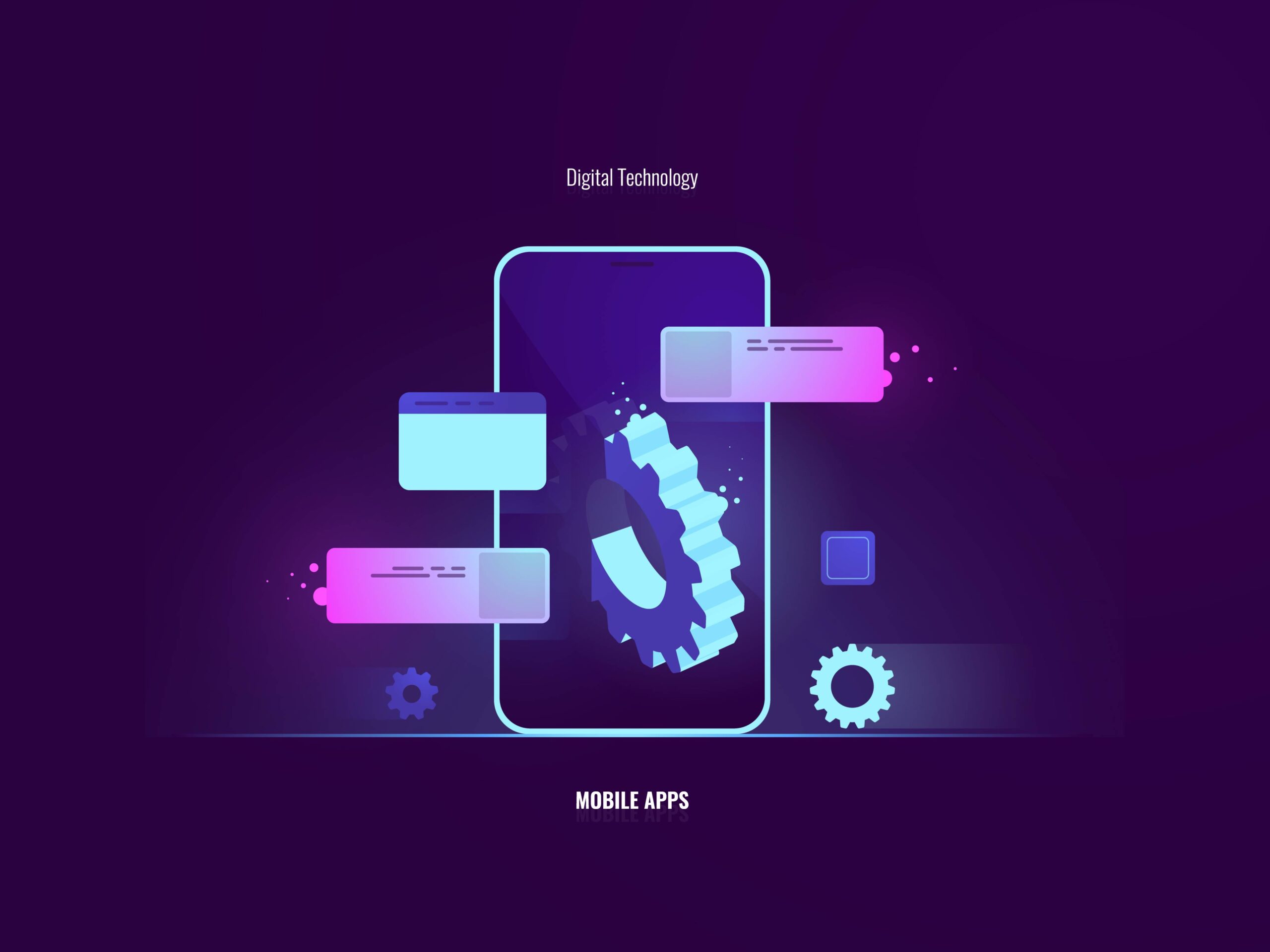Consider the scenario of delivering a mobile app with an important bug that crashes as soon as you open it or a user data exposure vulnerability.
In 2023, you would have put millions in revenue loss into the company’s pocket, and they would be losing goodwill. The mobile market is a tough place, and when an application fails to appeal to its audience, it just dies.
However, nearly all of these disasters could have been averted by employing best practices in mobile automation testing. Reminder for when we roll around to 2024: with more than 7 million apps fighting for eyeballs, quality cannot be “nice to have”; it’s an existential need.
This is when the new set of mobile automation testing tools jumps in. Whilst a time-saver, this is not the only advantage—it guards against issues in your app’s health, enhances user satisfaction, and ultimately translates into cost savings (albeit indirectly) for your business.
What is Mobile Automation Testing?
Mobile automation testing is the process of using specialized software tools to execute pre-scripted tests on mobile applications. These tools simulate user interactions, verify functionality, and identify bugs or performance issues. Automating testing allows developers and QA teams to cut down time, eliminate human error—thus improving test coverage—all while guaranteeing consistent results.
The benefits of mobile automation testing are numerous:
- Increased efficiency: Automated tests can run 24/7 without human intervention, which speeds up the testing process and allows for more frequent test executions.
- Improved test coverage: Automation helps execute a more comprehensive range of test scenarios, including edge cases that might be overlooked in manual testing.
- Faster time to market: Automation accelerates the testing process, helping reduce development cycles and allowing for quicker product releases.
- Enhanced reliability: Automated tests perform the same operations precisely every time they run, eliminating human error and providing consistent results.
- Cost-effectiveness in the long run: While there may be initial setup costs, automation pays off over time by reducing the need for manual testing methodologies and catching bugs earlier in the development cycle.
Now, let’s dive into the various types of mobile testing tools and explore the top 15 options available in 2024.
What are Mobile Testing Tools?
Mobile testing tools are software applications designed to evaluate the functionality, usability, and performance of mobile applications. These tools are of three types:
- Automation Testing Tools
- Performance Testing Tools
- Functional Testing Tools
Additionally, we’ll look at some other essential tools that support the mobile testing process. Let’s explore each category and the top tools within them.
Automation Mobile Testing Tools
Automation mobile testing tools are the backbone of efficient mobile app testing. These enable testers to script tests that impersonate user interactions. As we look into 2024, many automation testing tools for mobile apps stand out as the best options.
1. Appium
Appium is an open-source tool for automating native, mobile web, and hybrid applications on iOS and Android devices. It is widely adopted due to its flexibility and cross-platform capabilities, making it accessible for a large number of devices globally.
Key features:
- Supports a variety of programming languages, including Java, Python, and Ruby.
- Works with native, hybrid, and web apps
- Integrates well with popular testing frameworks
Why choose Appium? Appium’s versatility makes it an excellent choice for teams working on cross-platform apps. Its large community support ensures continuous improvements and readily available resources.
2. Espresso
Espresso, developed by Google, is a testing framework for Android applications. It is well-known for its fast and dependable UI testing.
Key features:
- Provides synchronization capabilities
- Offers a simple API for test creation
- Integrates seamlessly with Android Studio
Why choose Espresso? For teams focused on Android development, Espresso offers a streamlined testing experience. Its tight integration with Android Studio makes it a natural choice for Android developers.
3. Selendroid
Selendroid is an automation framework for Android native and hybrid applications, as well as mobile web apps. It’s built on top of the Selenium WebDriver API.
Key features:
- Supports multiple Android devices simultaneously
- Offers full integration with Selenium Grid
- Provides a built-in inspector tool
Why choose Selendroid? Selendroid is an excellent option for teams already familiar with Selenium. Its ability to handle multiple devices simultaneously can significantly speed up the testing process.
4. XCTest
XCTest is Apple’s native test framework for iOS apps. It integrates seamlessly with Xcode and includes a comprehensive set of UI testing tools.
Key features:
- Supports both unit and UI testing
- Offers performance testing capabilities
- Provides easy-to-use recording features for test creation
Why choose XCTest? For iOS-focused teams, XCTest offers a native solution that integrates seamlessly with the Apple ecosystem. Its performance testing capabilities make it a versatile choice.
5. Robotium
Robotium is an open-source Android UI testing framework that allows for the creation of robust automated black-box test cases.
Key features:
- Supports both native and hybrid Android apps
- Offers easy-to-write test cases
- Provides fast execution times
Why choose Robotium? Robotium’s simplicity and speed make it an attractive option for teams looking to quickly implement automated testing for Android apps.
6. Eggplant
Eggplant is a powerful AI-driven test automation tool that supports multiple platforms, including mobile devices.
Key features:
- Uses AI and machine learning for intelligent test creation
- Offers image-based testing capabilities
- Supports testing across various devices and operating systems
Why choose Eggplant? Eggplant’s AI-driven approach sets it apart from traditional automation tools. Its ability to handle complex scenarios and adapt to UI changes makes it a forward-thinking choice.
Performance Testing Tools
Performance testing is crucial for ensuring that your mobile app can handle real-world usage scenarios. Here are some top-notch performance mobile testing tools:
7. JMeter
Apache JMeter is an open-source tool primarily used for load testing, but it also supports performance testing for mobile applications.
Key features:
- It supports various protocols (HTTP, HTTPS, FTP, etc.).
- Offers a user-friendly GUI for test creation
- Provides extensive reporting and analysis capabilities
Why choose JMeter? JMeter’s versatility and robust feature set make it an excellent choice for teams looking to conduct comprehensive performance testing on their mobile apps.
8. Gatling
Gatling is an open-source load and performance testing tool that’s gaining popularity in the mobile testing space.
Key features:
- Offers a domain-specific language for test scripting
- Provides real-time reporting
- Supports high concurrency simulation
Why choose Gatling? Gatling’s ability to handle high concurrency makes it ideal for testing mobile apps that expect a large user base. Its real-time reporting helps quickly identify performance bottlenecks.
9. LoadRunner
LoadRunner, developed by Micro Focus, is a comprehensive performance testing tool that supports mobile applications.
Key features:
- Offers cloud-based testing capabilities
- Provides detailed performance analytics
- Supports a variety of protocols and technologies
Why choose LoadRunner? LoadRunner’s robust feature set and scalability make it suitable for enterprise-level mobile app testing. Its detailed analytics help pinpoint performance issues accurately.
Functional Testing Tools
Functional testing ensures that your mobile app behaves as expected and meets all specified requirements. Here are some top functional testing tools:
10. TestComplete
TestComplete is a functional testing platform that is compatible with both Android and iOS apps.
Key features:
- Offers keyword-driven and data-driven testing
- Provides AI-powered visual recognition
- Supports script-free test recording
Why choose TestComplete? TestComplete’s AI-powered features and script-free testing options make it accessible to testers of all skill levels. Its comprehensive approach to functional testing ensures thorough app evaluation.
11. Ranorex
Ranorex is a powerful automation tool that offers robust functional testing capabilities for mobile applications.
Key features:
- Provides a codeless test automation environment
- Offers cross-browser and cross-device testing
- Supports integration with popular CI/CD tools
Why choose Ranorex? Ranorex’s codeless environment makes it an excellent choice for teams looking to implement automated functional testing without extensive coding knowledge. Its integration capabilities ensure smooth incorporation into existing workflows.
Other Tools
In addition to the main categories, several other tools play crucial roles in the mobile testing ecosystem. Let’s explore a few of these:
12. Charles Proxy
Charles Proxy is a web debugging proxy tool that can be invaluable for mobile app testing.
Key features:
- Allows monitoring and modification of HTTP/HTTPS traffic
- Supports SSL proxying for secure connections
- Offers bandwidth throttling for network condition simulation
Why choose Charles Proxy? Charles Proxy is essential for debugging network-related issues in mobile apps. Its ability to intercept and modify traffic helps in testing various scenarios and edge cases.
13. Fiddler
Fiddler is another popular web debugging proxy that’s useful for mobile app testing.
Key features:
- Provides detailed network traffic analysis
- Offers request and response manipulation capabilities
- Supports performance testing and optimization
Why choose Fiddler? Fiddler’s comprehensive feature set makes it a versatile tool for mobile app testing, and its performance testing capabilities complement those of other dedicated testing tools.
14. Android Debug Bridge (ADB)
ADB is a versatile command-line tool that allows communication with Android devices.
Key features:
- Enables direct interaction with Android devices
- Supports app installation and uninstallation
- Provides access to device logs and system information
Why choose ADB? ADB is an essential tool for Android app developers and testers. Its command-line interface allows for quick actions and automation that can streamline the testing process.
15. iOS Simulator
The iOS Simulator, which is included with Xcode, is a crucial tool for testing iOS applications.
Key features:
- Simulates various iOS devices and versions
- Allows testing of different screen sizes and orientations
- Provides quick iteration for UI testing
Why choose iOS Simulator? For iOS app development and testing, the iOS Simulator is indispensable. It allows for rapid testing across multiple device configurations without the need for physical devices.
Conclusion
The mobile app testing landscape is rich with powerful tools, each offering unique features and capabilities. From comprehensive automation frameworks like Appium and Espresso to specialized tools like Charles Proxy and ADB, there’s a solution for every testing need.
As we move further into 2024, these tools continue to evolve, incorporating AI, machine learning, and cloud capabilities to meet the growing demands of mobile app development. The key to successful mobile app testing lies in choosing the right combination of tools that fit your specific project requirements, team skills, and development workflow.
Remember, an angle tool cannot address all testing needs. A well-rounded testing strategy often involves a combination of these tools, leveraging their strengths to ensure comprehensive test coverage.
By embracing these powerful mobile testing tools, you can significantly improve your app’s quality, reduce time-to-market, and ultimately deliver a superior user experience.


